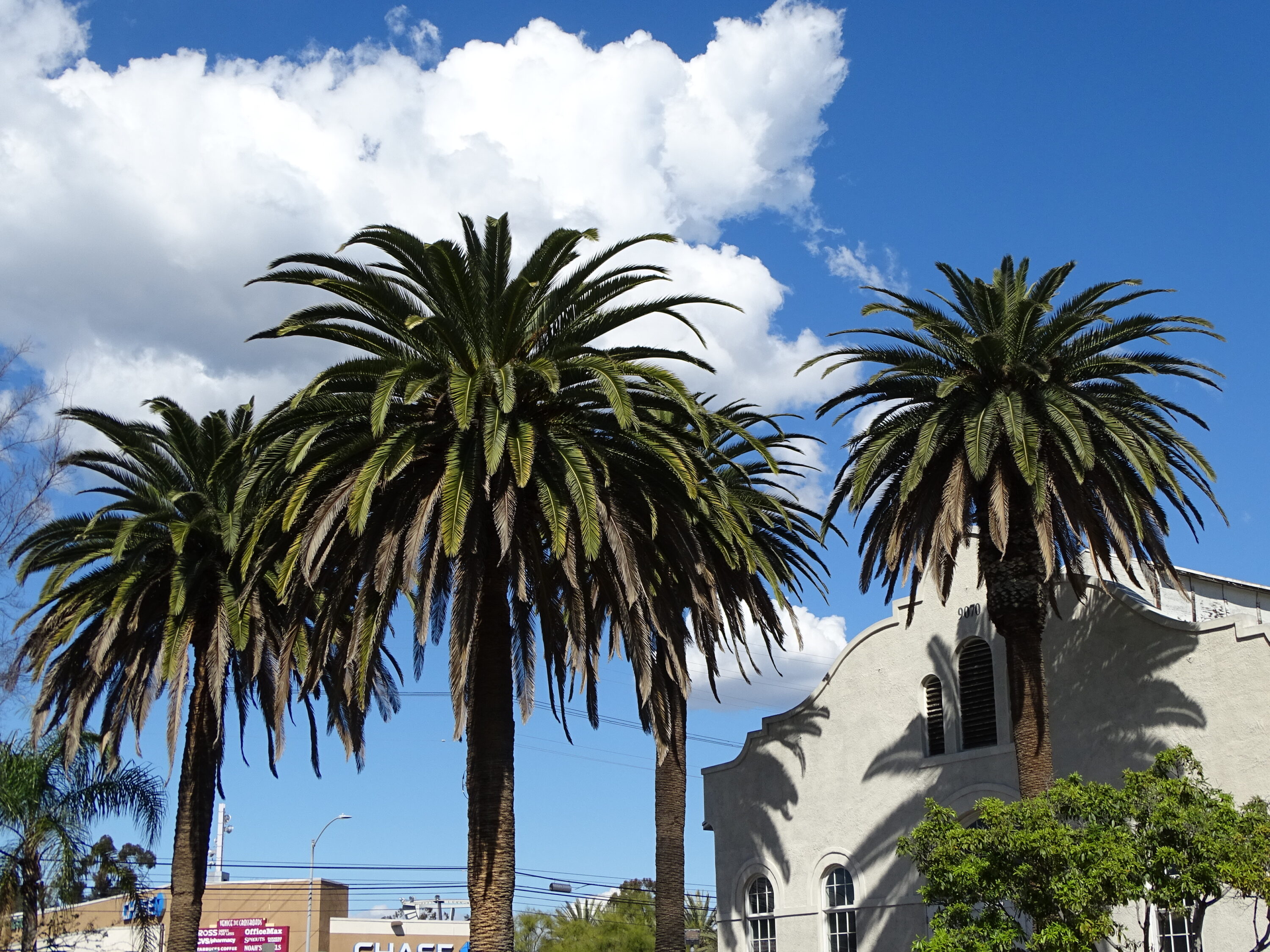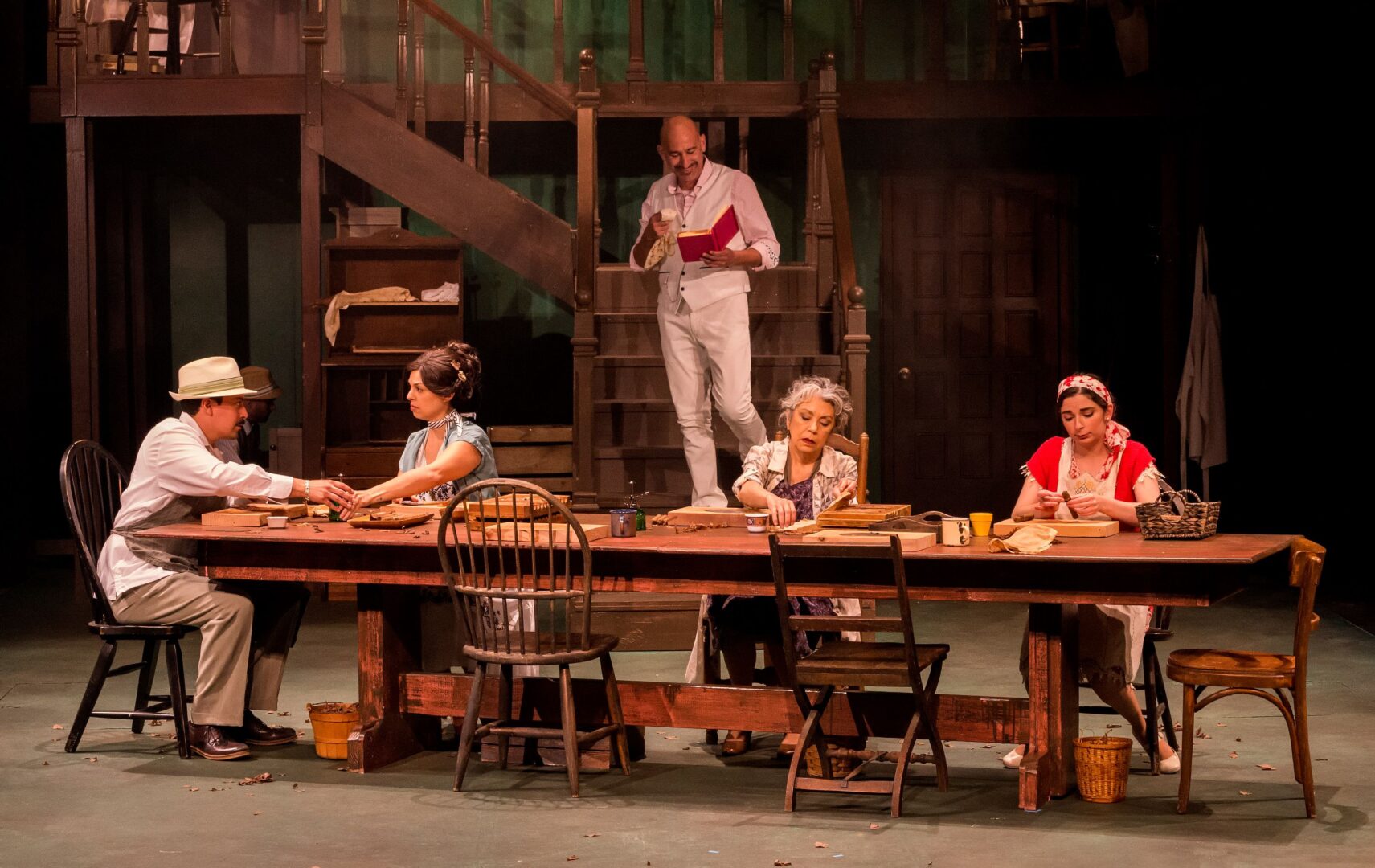
“Anna in the Tropics,” Nilo Cruz’s Pulitzer Prize-winning drama about cigar factory workers, is on stage at A Noise Within (ANW) from March 20 through April 17, 2022. The fifth production during the theatre company’s 30th anniversary season, it marks the directorial debut of Jonathan Muñoz-Proulx.
The play is set in 1929 at a Cuban-American cigar factory where cigars are still rolled by hand and lectors are employed to provide a diversion in the workers’ tediously repetitious daily labors. When a handsome and debonair new lector, Juan Julian, reads the story of Tolstoy’s ‘Anna Karenina,’ the lives of the workers begin to parallel those of the novel’s characters. Suddenly the drama takes over their otherwise humdrum reality – old traditions and new ways collide while longing, love, and betrayal spark a volatile flame foreshadowing the end of an era.
It is through this electrifying play that ANW audiences will be introduced to Muñoz-Proulx, who is also ANW’s inaugural Director of Cultural Programming. He came on board three years ago and is responsible for curating and producing all the events in the Noise Now program. This means creating workshops, readings, concerts, and dance events in collaboration with community partners to build relationships with new audiences, and partner with other artists.
Muñoz-Proulx explains the genesis of the job, “It was a new position they were looking to fill. They knew they wanted to have a community focus that engages audiences of color – specifically, blacks and indigenous people. I really had a very open and supportive invitation to build this program from scratch and let it change as we continue to define it. That’s my principal role.
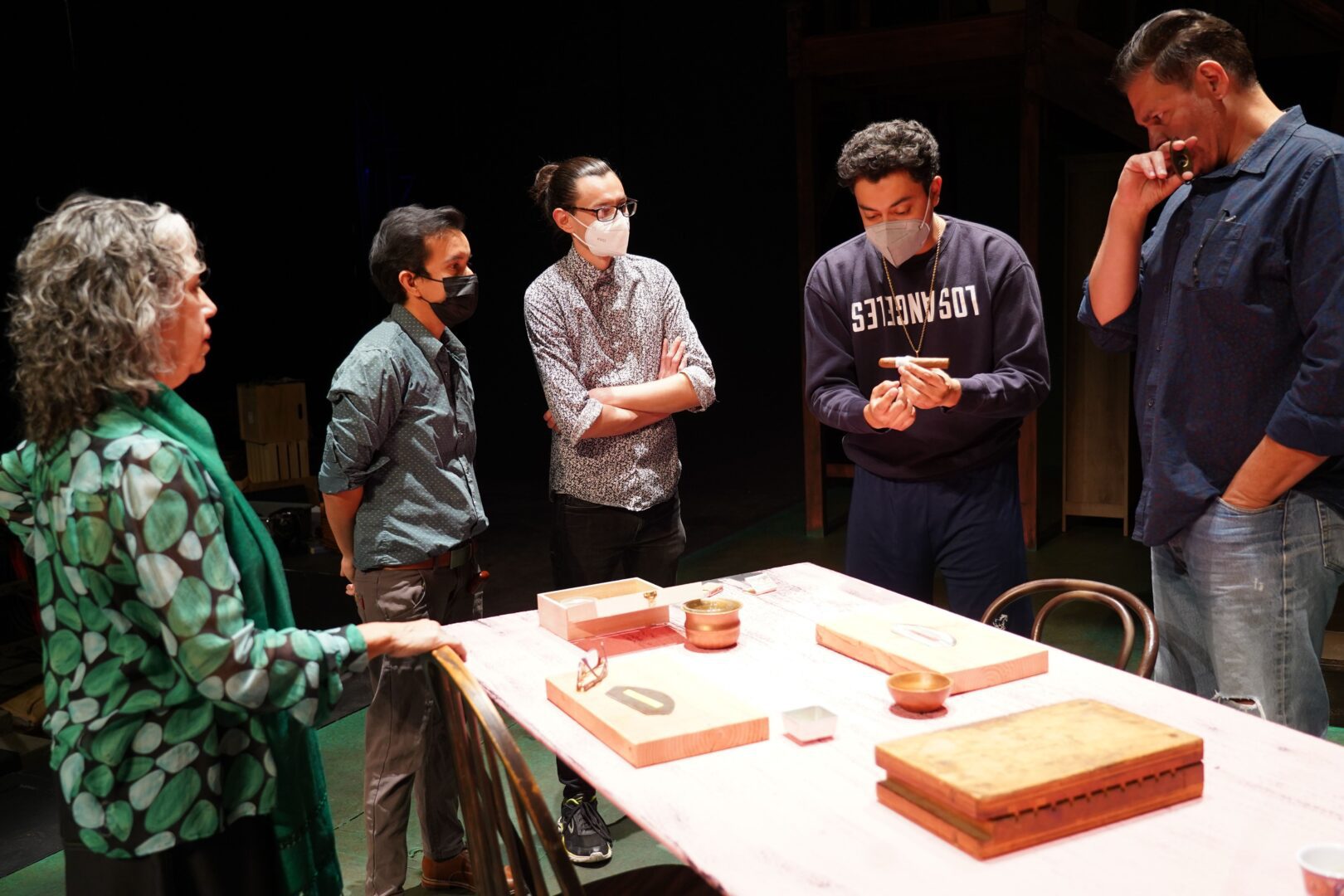
“But I also wear an artistic hat where I work with and Geoff and Julia (Elliott and Rodriguez-Elliott, artistic and producing directors of ANW) and we talk about season planning and selecting directors and designers, discussing what’s going to be on our main stage. Over these three years, my relationship with them and the theatre has deepened. When I first started, I really just had one job – these community partnerships. But because we’ve built trust and an artistic language together, I’m now supporting season selections and also working more closely with resident artists (RAs). The RAs curate and present their own reading series called ‘The Resident Artist Series’ which I’m going to be curating and producing.”
And directing ‘Anna in the Tropics’ has added an extra responsibility. To say that Muñoz-Proulx has been busy lately is quite an understatement. He states, “I’m in Zoom meetings all day with artists, answering emails, and reading plays. Then during dinner I do some directing prep and head into the theatre for rehearsals. We work from 6 to 11 pm on weeknights – they’re really long days for me. It’s a dream life for six weeks and then I’ll probably sleep for a month afterwards.”
In spite of the long days and sleep deprivation, Muñoz-Proulx excitement when he talks about ‘Anna in the Tropics’ comes through even when he’s speaking to me by phone. He describes, “It’s a highly theatrical play where these cigar workers escape the monotony of their day-to-day life working in a factory and are transported by the words of the classic literature read to them beyond the factory walls. There’s a wonderful balance of very intense drama and tension with a really poetic, musical freedom of the play. It’s a roller coaster – it just goes and goes and goes until it reaches its climax. And it’s epic! It will just pull the audience along this roller coaster ride to the end.”
“A lot of the play happens as the workers are coming in to work, as they’re leaving work, and in between their shifts,” Muñoz-Proulx explains. “So it’s almost like you’re seeing the characters at the water cooler chatting about the drama and the gossip of their lives – who they love and who they hate. Their lives start mirroring those of the characters’ in the book. And the characters in the book are giving the factory workers the courage to say what they want and ask for what they need and feel empowered to live their fullest lives. It reminds me of today where we might watch television or a movie and see our identities reflected back to us to give us the courage to be our fullest selves.”
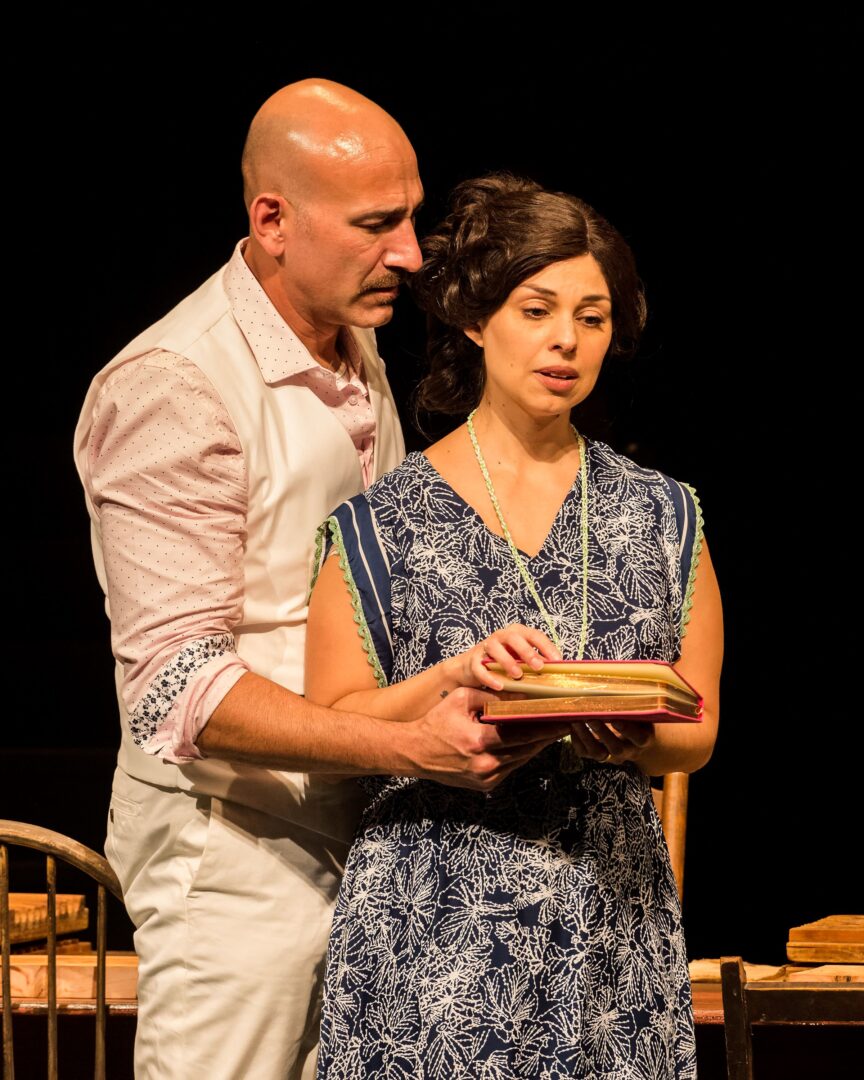
Because ‘Anna in the Tropics’ is about Cuban-Americans, the cast is made up of actors who look like the characters. Muñoz-Proulx states. “It was very important to us that everyone identifies as Latino or Latina or Latinx. Among ANW’s resident artists, only two – Erika Soto and Rafael Goldstein – are of Latin descent and we knew this is a play we were not going to cast from our RA community. So it was a great opportunity for ANW to meet a lot of new artists through several rounds of auditions. And, hopefully, this will be the start of some ongoing relationships with them.”
While it means that the cast will be new faces for ANW’s audience, they won’t be strangers to Muñoz-Proulx. He asserts, “I live, and work, and direct in Los Angeles so I’ve known and worked with most of the cast of ‘Anna in the Tropics’ for ten years. Even though they haven’t been to ANW necessarily, this is a community of artists whom I have a great relationship with. However, as a director, I’m not so concerned about having a shorthand with them or working quickly, we’ll find our own artistic language together. What matters most to me is that the people we bring into the room – the actors and creative community – have really big hearts and are pleasant collaborators. That doesn’t mean we all need to be best friends, it means we create a space where people can be imperfect, and vulnerable, and ask questions, and be supportive along that journey.”
I ask if people of color are now getting more roles and recognition in theatre. Muñoz-Proulx replies, “I think they are. I think it has become more and more unacceptable for theatres to produce plays that predominantly feature white actors. I think more and more theatres are producing plays written by playwrights of color. And more and more, they’re hiring directors of color. And more and more, not only are actors of color in those plays but, more importantly, actors of color are also in plays that don’t have to cast actors of color – like some classics or Shakespeare. I think there’s greater artistic freedom being celebrated in how we cast nontraditionally.”
“It isn’t that roles are color blind,” Muñoz-Proulx clarifies. “I gravitate towards the term color conscious because I think color matters and I think the audience does see it. And there can be some stories told about how folks identify on stage. But being color conscious, I think, allows us to let go of a default that every character is white unless we decide otherwise. I think being color conscious invites the possibility that a character could be whoever comes to the audition and really excites and surprises us with their interpretation of the role.”
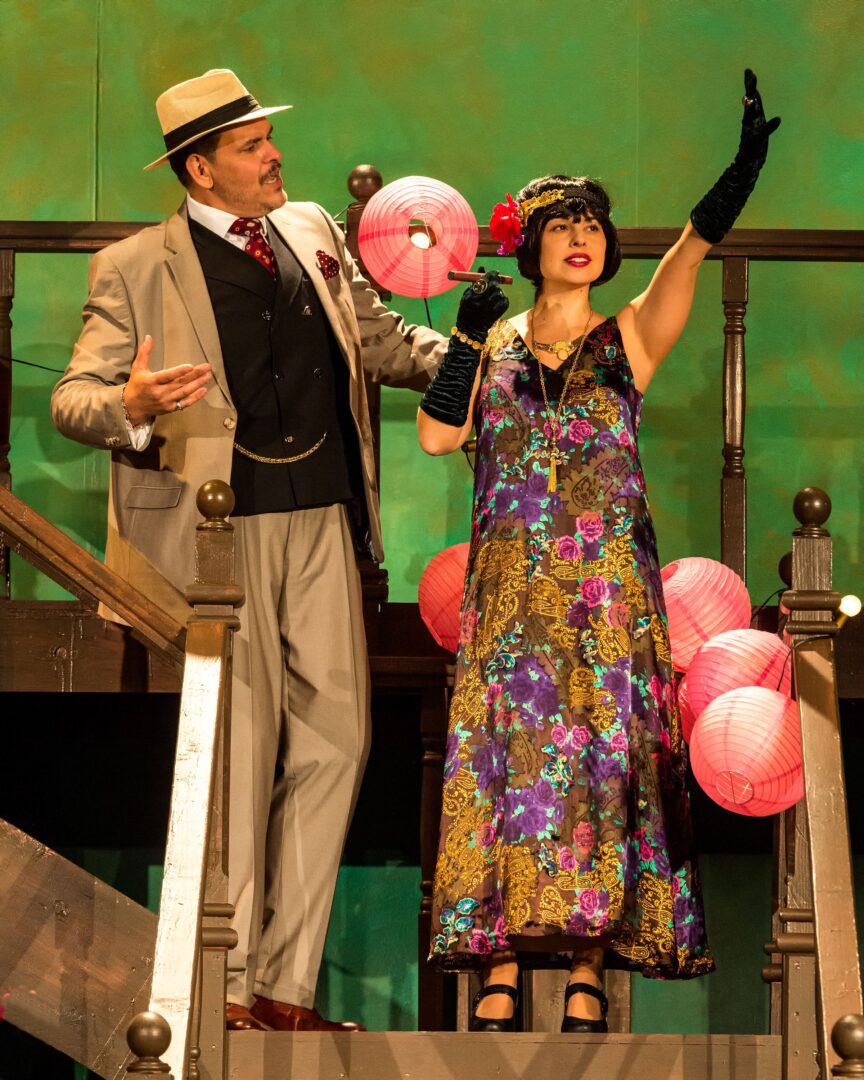
“And it doesn’t matter if the blood relatives in the play are from a different race or culture,” expounds Muñoz-Proulx. “I think there’s a lot of freedom and flexibility in theatre that we maybe don’t have on film and television. In theatre, we can really build the artistic team; we can assemble the cast to how we decide to tell the story regardless of what they look like. The priority is that the cast is representative of our community. And in this state, our community is incredibly diverse Los Angeles. It’s important that within the whole season, we have a diverse balance of actors of color. But even with plays that have customarily white cast, we have people of color play roles that are traditionally played by white actors, as we did in ‘All’s Well that Ends Well.’”
When asked about his vision for the play, Muñoz-Proulx responds, “I’m very interested in how we can establish a simple and realistic monotony to this factory. I’m attracted to how we can show what their everyday life is like, but then infuse that with some form of magic, and poetry, and theatricality. And even though I haven’t seen a lot of other productions, I think that ours will probably have more magic and theatricality than other productions.”
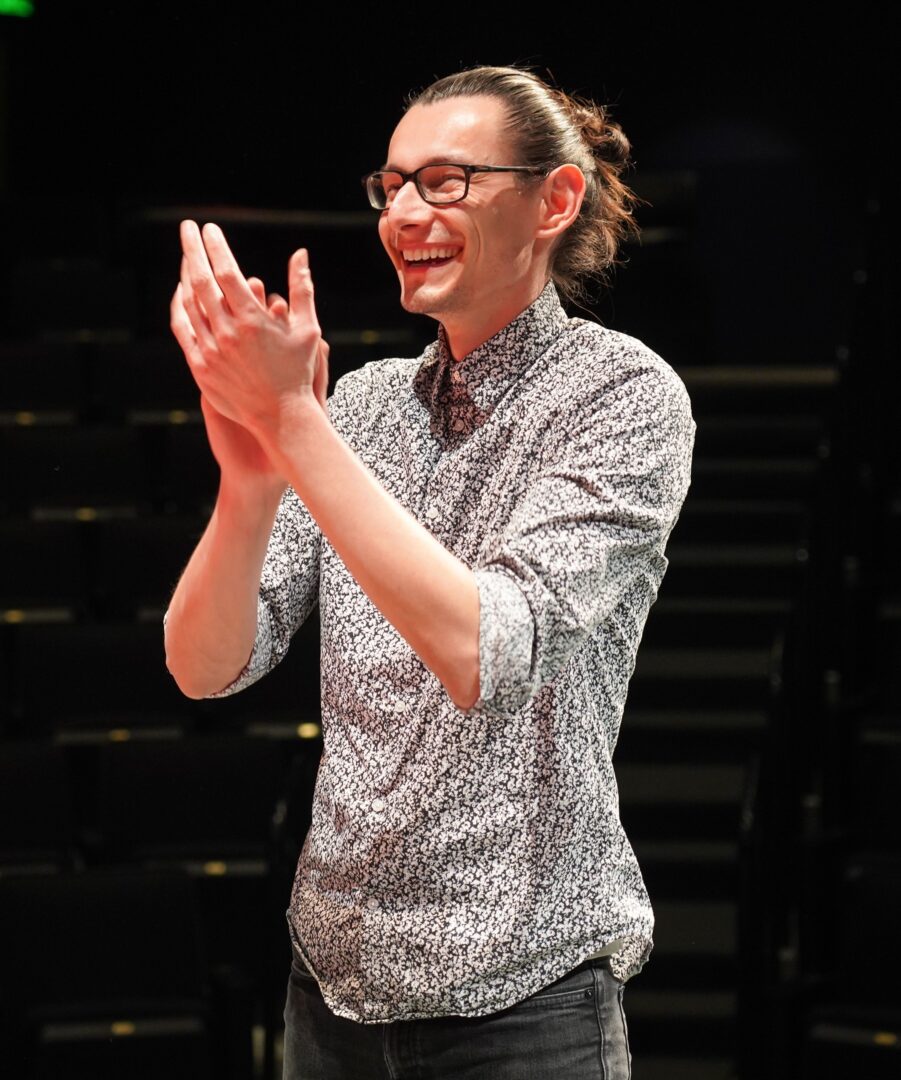
“That’s the type of theatre I love,” Muñoz-Proulx adds. “For example, if a character is having an emotional moment, I tell my team and my designers that I want to tease out that monologue, expand it to fill the room. That might mean that with light or sound or color we exaggerate or emphasize what’s going on. Even though the work inside the factory isn’t a particularly joyous moment or particularly traumatic instance, that might be represented in a more abstract and magical way. It might not be what Nilo Cruz requires in the text, but I’m little by little finding moments – and you’ll see them – where there will be some theatrical magic.”
“I want our audience to leave the theatre with the sentiment that the people we love and our relationships are the most important things we have,” says Muñoz-Proulx. “And it’s very easy to take for granted what we have even when it’s right in front of us … until it’s gone. We see these characters in this play really struggle with each other. But they also need each other to heal and to survive.”
“The play has an awareness – it is really interested in the tradition of rolling cigars, the tradition of bringing a Cuban culture to America,” enlightens Muñoz-Proulx. “It is very much about ‘How do we preserve and stay connected to our ancestors and to or legacy, and to the traditions that made us?’ And I think that’s a really beautiful theme that a lot of us can connect to. The play also engages with themes of modernity and progress and change taking place in 1929 just before the Great Depression. These characters are planning for a joyous future ahead, not knowing that the whole world is going to change and be crushed by the Great Depression. Having gone into this pandemic two years ago, and beginning to emerge from it now, never before have I thought so much about change, and recovering, and healing from change.”
Muñoz-Proulx couldn’t have better articulated what most of us are feeling at the moment. Because of what we’ve been through, we learned to distinguish the truly important and profoundly meaningful from a mere trifle and fleeting fancy – then to protect them fiercely and hold them close in our hearts.





